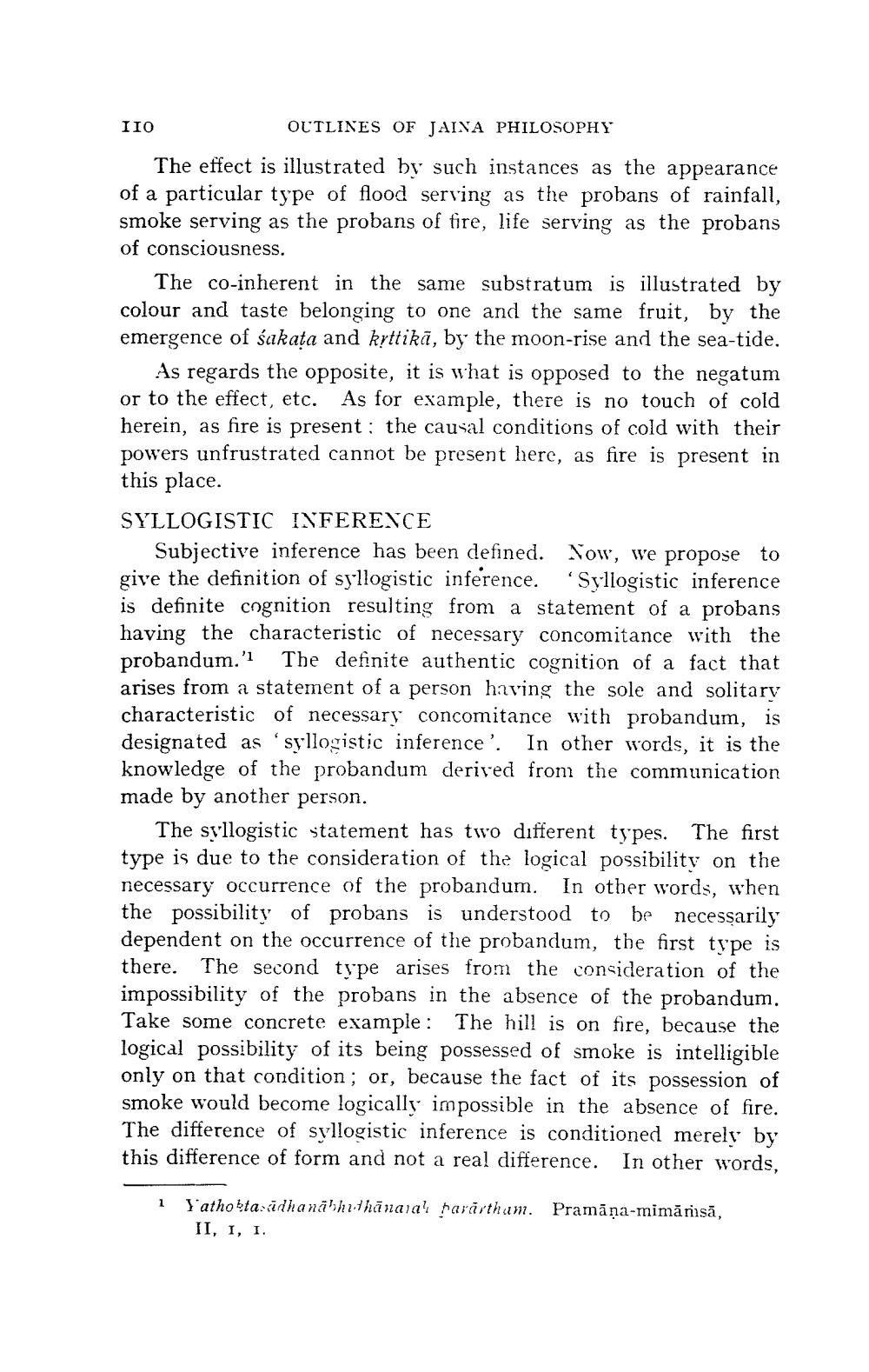________________
IIO
OUTLINES OF JAIXA PHILOSOPHY
The effect is illustrated by such instances as the appearance of a particular type of flood serving as the probans of rainfall, smoke serving as the probans of fire, life serving as the probans of consciousness.
The co-inherent in the same substratum is illustrated by colour and taste belonging to one and the same fruit, by the emergence of sakata and kyttikā, by the moon-rise and the sea-tide.
As regards the opposite, it is what is opposed to the negatum or to the effect, etc. As for example, there is no touch of cold herein, as fire is present: the causal conditions of cold with their powers unfrustrated cannot be present here, as fire is present in this place. SYLLOGISTIC INFERENCE
Subjective inference has been defined. Now, we propose to give the definition of syllogistic inference. Syllogistic inference is definite cognition resulting from a statement of a probans having the characteristic of necessary concomitance with the probandum.' The definite authentic cognition of a fact that arises from a statement of a person having the sole and solitary characteristic of necessary concomitance with probandum, is designated as syllogistic inference'. In other words, it is the knowledge of the probandum derived from the communication made by another person.
The syllogistic statement has two different types. The first type is due to the consideration of the logical possibility on the necessary occurrence of the probandum. In other words, when the possibility of probans is understood to be necessarily dependent on the occurrence of the probandum, the first type is there. The second type arises from the consideration of the impossibility of the probans in the absence of the probandum. Take some concrete example: The hill is on fire, because the logical possibility of its being possessed of smoke is intelligible only on that condition; or, because the fact of its possession of smoke would become logically impossible in the absence of fire. The difference of syllogistic inference is conditioned merely by this difference of form and not a real difference. In other words,
1 Yatho bta dhanibhithanara! narartham. Pramāna-mimārisā,
II, I, I.




